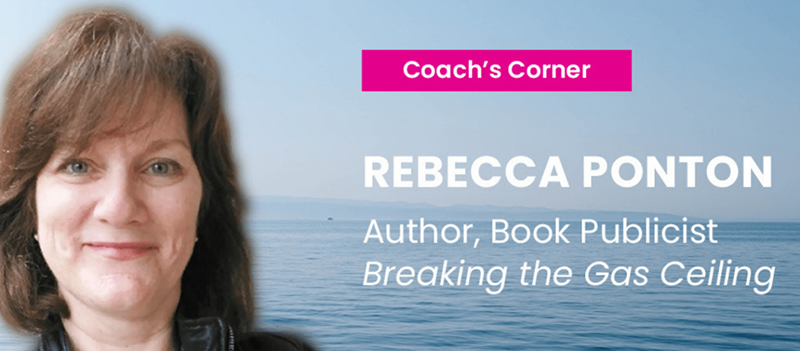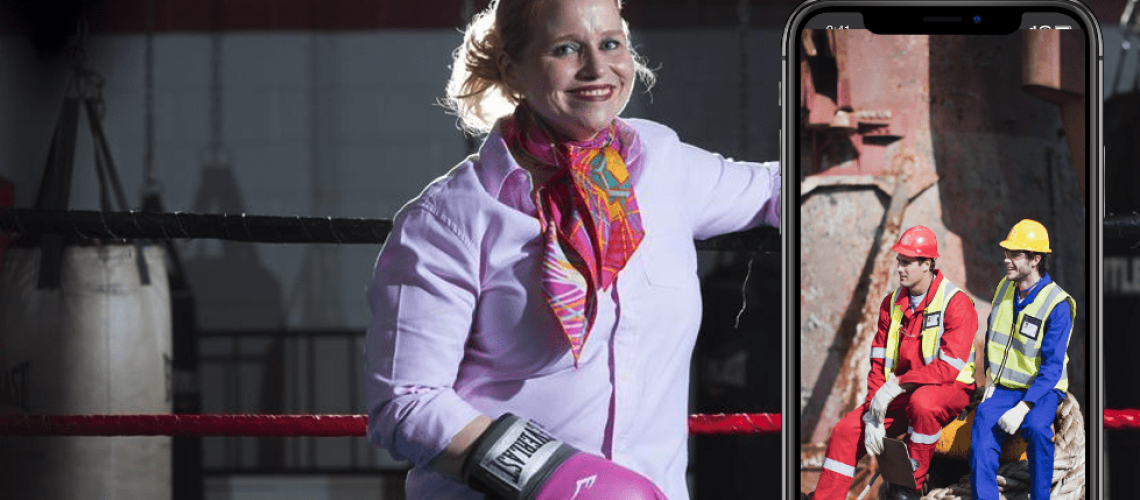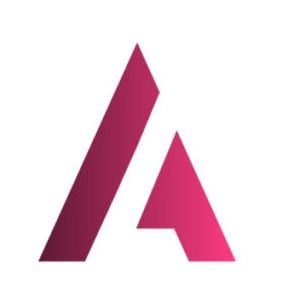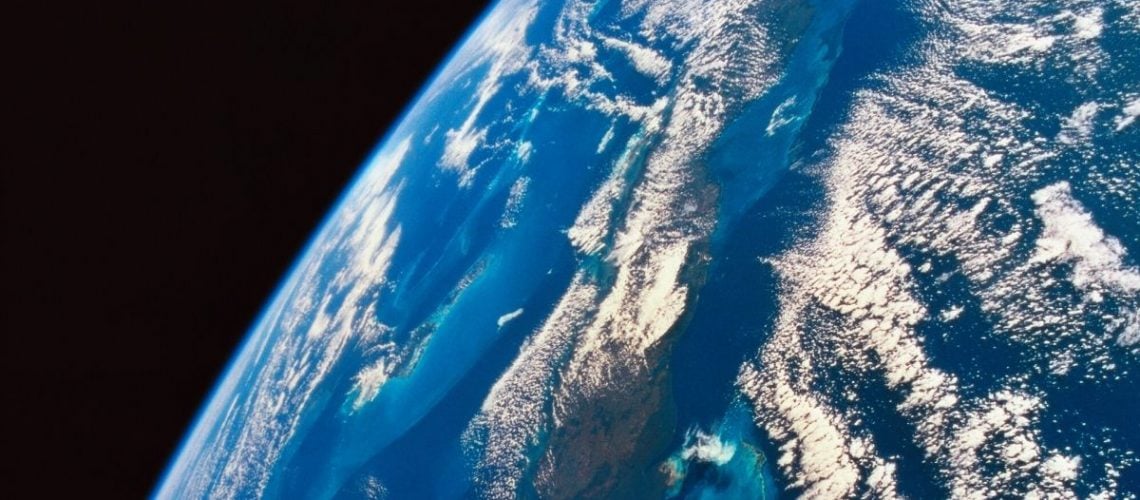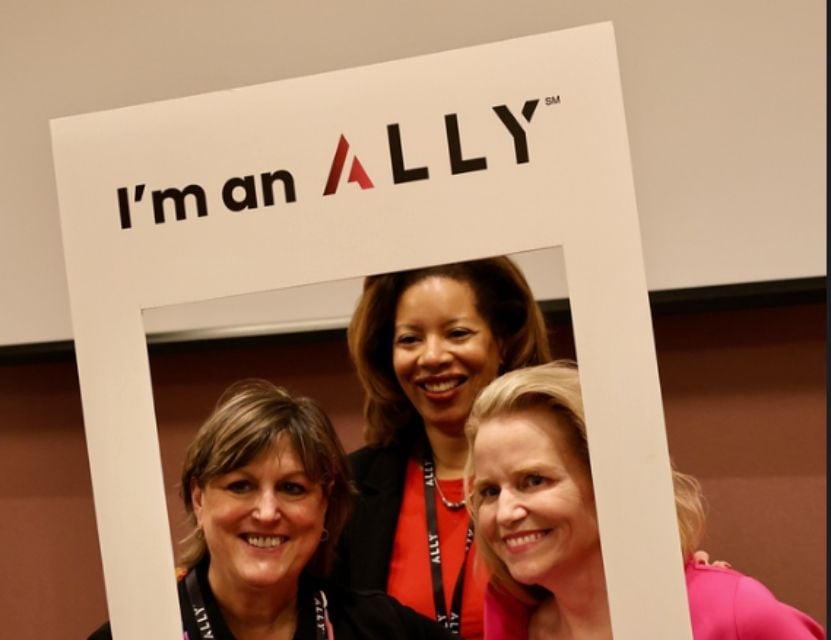How we can ‘break that gas ceiling’
“Where are the women in oil and gas?” wondered author Rebecca Ponton, once she began attending conferences. She would see women ‘landmen’ in large numbers starting in 2011 (women running title to determine mineral ownership in a property). But as soon as she went to conferences where top executives in onshore and offshore would speak, the numbers dropped off a cliff.
Rebecca spoke at Pink Petro’s monthly ‘Coach’s Corner’ in May, sharing her own story of the often heroic journeys of the women pioneers who paved the way for those who came behind them. Her book, recently published, is called ‘Breaking the Gas Ceiling: Women in the Offshore Oil and Gas Industry.’
Pink Petro members can watch Rebecca's interview on Coach's Corner here.
“I continued to notice the same scenario. There were few women in attendance and even fewer female speakers and presenters.” She had read of executives in the industry stating publicly he couldn’t name a single woman CEO or at the C-suite level. She knew that not only was that perception at the top distorted but that there were many women working at the extraction level who were likewise not being heard or seen.
Women comprise only 3.6% of the offshore workforce.
Although women a small percentage of the workforce, they still play an important role in the industry. Rebecca searched for a book specifically about women in offshore - and did not find a single one. “Given my background, I thought, I have to find these women and write about them!”
Asking herself where the women were, started her on a quest to find the women offshore. The women doing the physical and often invisible work that made the upstream industry possible. And not just mature women of European descent and mature, but young graduates and women of color who were taking the industry by storm - a quiet storm. Comprising only 3.6% of the offshore workforce (according to Oil & Gas UK), women have nevertheless played an important role in the industry.
Rebecca’s findings surprised her.
There were women in their 70s who were still working offshore, having enjoyed a five-decade-long career in the male-dominated industry. Most of the women had children and families of their own onshore. What they all had in common was a relentless determination to succeed and supportive families who encouraged them to follow their dreams. One of her favorite quotes was, “the answer is always ‘no’ if you never ask.”
“Women are not new to the industry. We have been involved in the industry just as long as men have - although not in as great numbers.”
Rebecca felt like the stories held universal truths which could help women of all ages navigate a career in offshore (and on). Her subjects were from the Middle East, Europe, Africa, and the Americas, yet the threads running through their stories were consistent. Progress was possible if the women were clear about the path they sought to carve out for themselves.
The profile subjects were from rigs and companies all over the world.
They ranged from engineers and photographers to CEOs, pilots, and divers. Their stories were often touching, inspiring and surprising. She details one, Margaret McMillan, aged 95, who is the unheralded creator of many of the water safety programs in the industry. Alyssa Michalke, an ocean engineering major (class of ‘17), just starting her offshore career. Arlete Fastudo is Sonangol's first female marine engineer. Sara Akbar is the co-founder and CEO of Kuwait Energy. Eve Howell is the first woman head of Australia’s North West Shelf. The list goes on - all women many have probably never heard of.
A theme was clear: women did not take 'no' for an answer.
As women, “we are not new to the industry. Women have been involved in the industry just as long as men have (although not in as great numbers)”. She wants women in the industry to not only achieve greater parity but to be a “vocal and visible minority”. Her book is tipping a hat to these offshore women pioneers, and helping to inspire a new generation of women to join their ranks.
Rebecca shared the stage with one of her interview subjects, Mieko Mahi, an oil and gas photographer, and videographer. Mieko said that she always felt respected as a professional in the offshore realm and that this respect translated into the quality of her work.
 She also said that when she started her career, she was so grateful to have work she would accept any wage offered. But later she learned to benchmark her work and to ask for the going rate. She later “asked for more money than the other gentleman who was going to get the job. I got the job offer and didn’t get what I was asking for. But my boss was determined to get me that money. The thing was asking!” This lesson stuck with her throughout her career. “ I learned the secret is, don’t undersell yourself.”
She also said that when she started her career, she was so grateful to have work she would accept any wage offered. But later she learned to benchmark her work and to ask for the going rate. She later “asked for more money than the other gentleman who was going to get the job. I got the job offer and didn’t get what I was asking for. But my boss was determined to get me that money. The thing was asking!” This lesson stuck with her throughout her career. “ I learned the secret is, don’t undersell yourself.”
Women had Creative Solutions to Work-Life Balance
Other women Rebecca interviewed shared how they crafted their work and personal lives to best serve their families. “Some women had creative solutions. The company offered one woman, who was very good at her job, the opportunity to send her very small child to accompany her. They provided a nanny and a driver to care for the child so she could do her job. And some of these husbands stayed at home to take care of the children.” There are lessons here, she said, about how employers could reward star employees with perks that made their lives more balanced.
Looking to the future, Rebecca said the industry needed more women to help it achieve greater parity. If offshore demographics could more closely match those onshore, then this would be a major step forward. But at less than 4%, the industry is about only a quarter of the way there with a long way to go. Yet, she said, progress begins with the simple things.
“Last year there were several big appointments of women to high positions. Several times there wasn’t even a picture with the announcement. It almost dehumanizes them - we don’t know who they were.”
But for women to be more visible in the energy industry - onshore and off - they actually need to become more visible. Furthermore, small, but concrete steps in this direction would go a long way, she said. “Companies need to be more aggressive,” she said, in promoting their own women in leadership. Only then will the younger women see that progress is possible, and want to join and stay.
Learn more about careers in the energy industry here: Experience Energy
Discover more about mentoring inside the industry: LeanIn Energy
Buy the book on Amazon.
